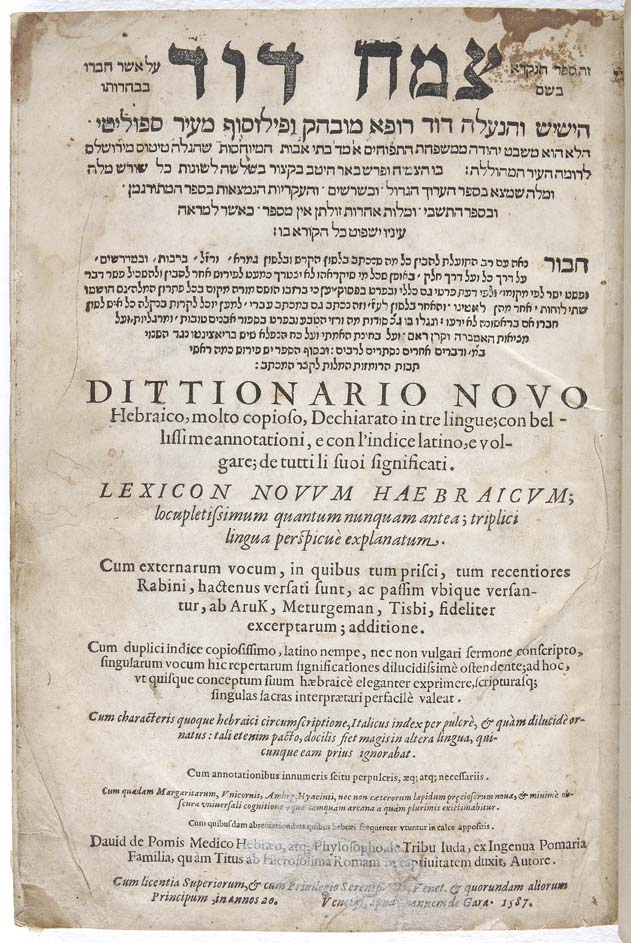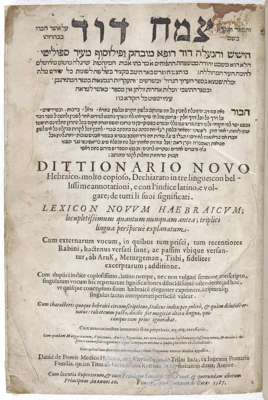
Lot 276

Pomis, David De


Rare Books, Manuscripts & Photographs
Auction: Rare Books, Manuscripts & Photographs | 09 May 2007
Description
Tzemach David. Venice: Giovanni di Gara, 1587. First edition, folio, the first two leaves mounted, the second at least probably contemporaneously as pagination and signatures (A3 signed 'A2') suggest this blank leaf with 'avertimento' on verso was added after initial printing, Roman, italic and Hebrew letter, woodcut arms of Sixtus V on A3 recto crossed through with a contemporary ink signed monogram 'S V', woodcut heraldic emblem of De Pomis on A6 verso, 2nd to 6th leaves (prefatory and dedicatory) with woodcut initials and decorations, modern quarter calf, title-page lightly browned, repaired at bottom, light waterstaining towards beginning and end and occasional ink or lamp oil stains, final few leaves with a wormhole in top outer corner (crudely repaired)
Footnote
Note: BM STC Italian Books p. 532; Adams P 1823; Vinograd, Venice 717; Habermann, di Gara 97a.
First edition of De Pomis' famous Italian, Latin, Hebrew and Aramaic Dittionario Novo Hebraico. This work was new in two ways, as an original digest of its major predecessors, and as a source (according to the author) of largely unknown new terms, mainly historical and scientific. The dictionary uses as its major sources the Shoroshim of David Kimchi (?1160-?1235), a philological dictionary printed before 1480; the Tishbi of the philologist, grammarian and lexicographer Elijah Levita (1468/9-1549), whose work was first published at Isny in 1541 and the Aruch of Nathan Ben Yechiel (1035-c.1110), a lexicon of the Talmud and Midrashim, published in Rome in 1462-1472, whose author according to one legend was a member of the De Pomis family. The author dedicated the work to Sixtus V, who had revoked a ban on Jewish doctors treating Christian patients, which had been put in place by his predecessor Pius V. This had been a major infringement on the life of De Pomis, who was by profession a physician, and who furthermore argued in a treatise in 1588 that it was the duty of Jewish doctors to treat Christians.

